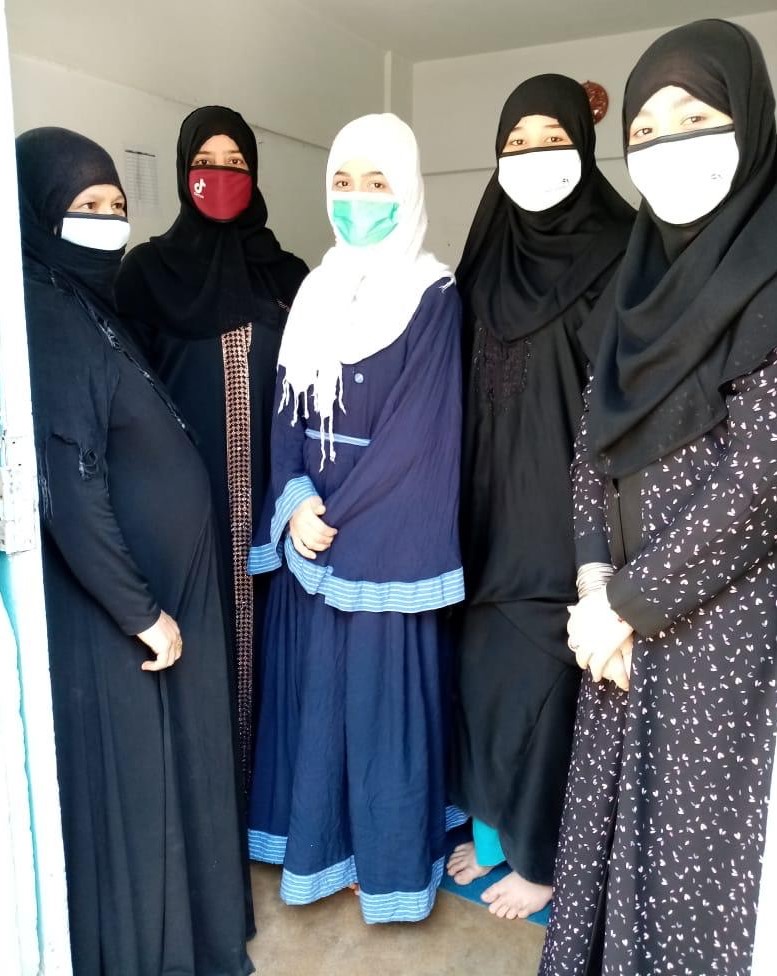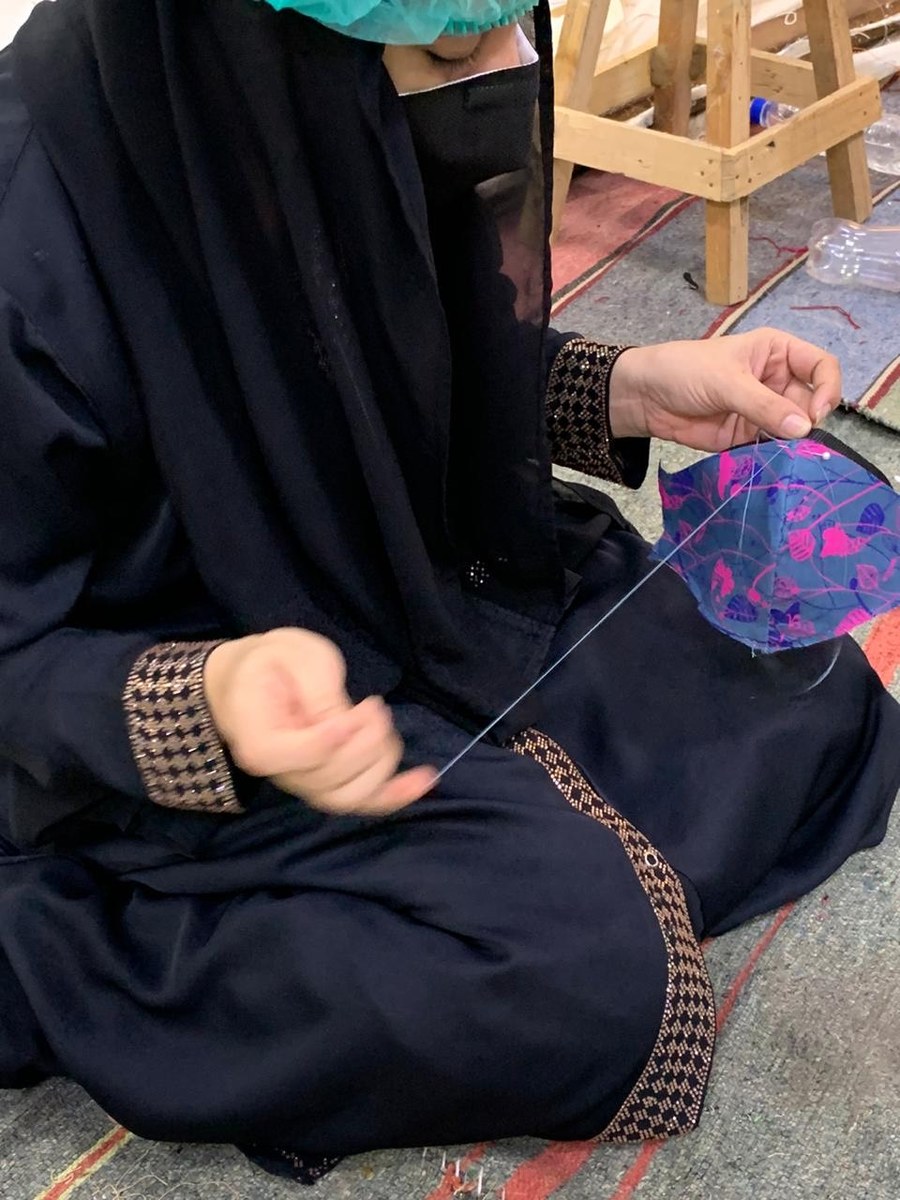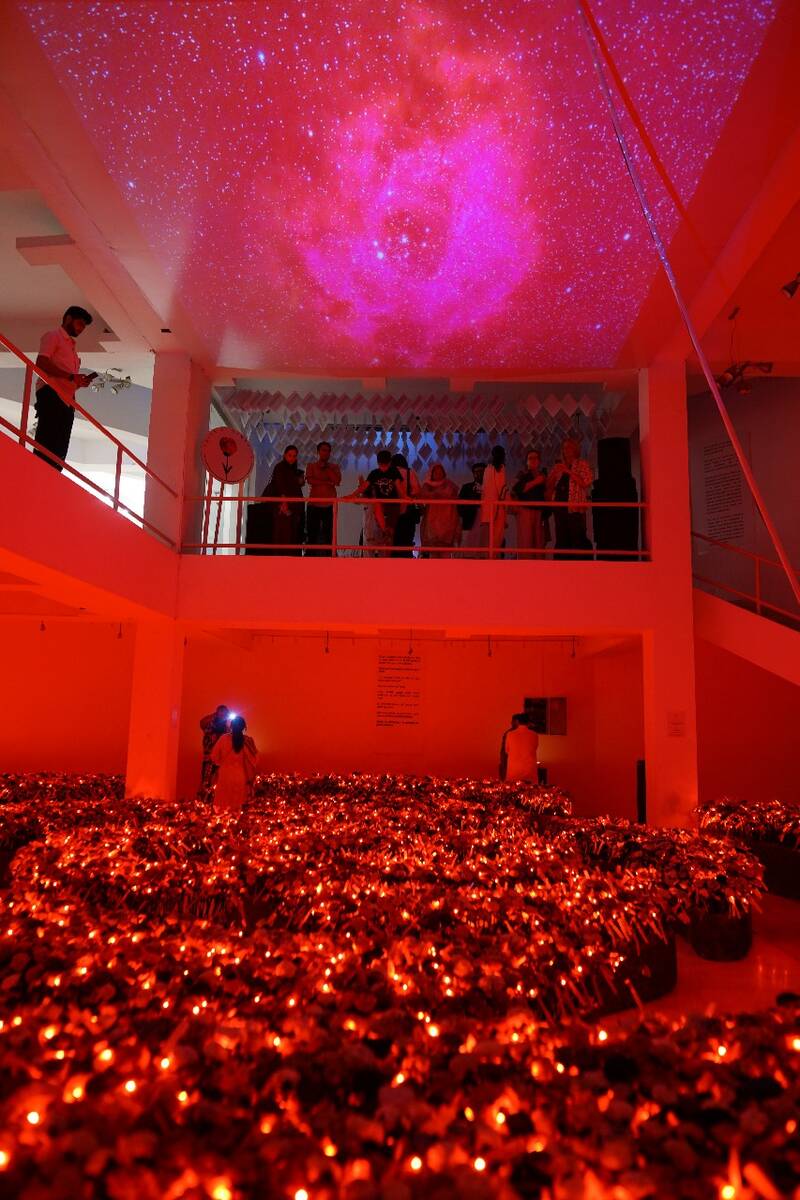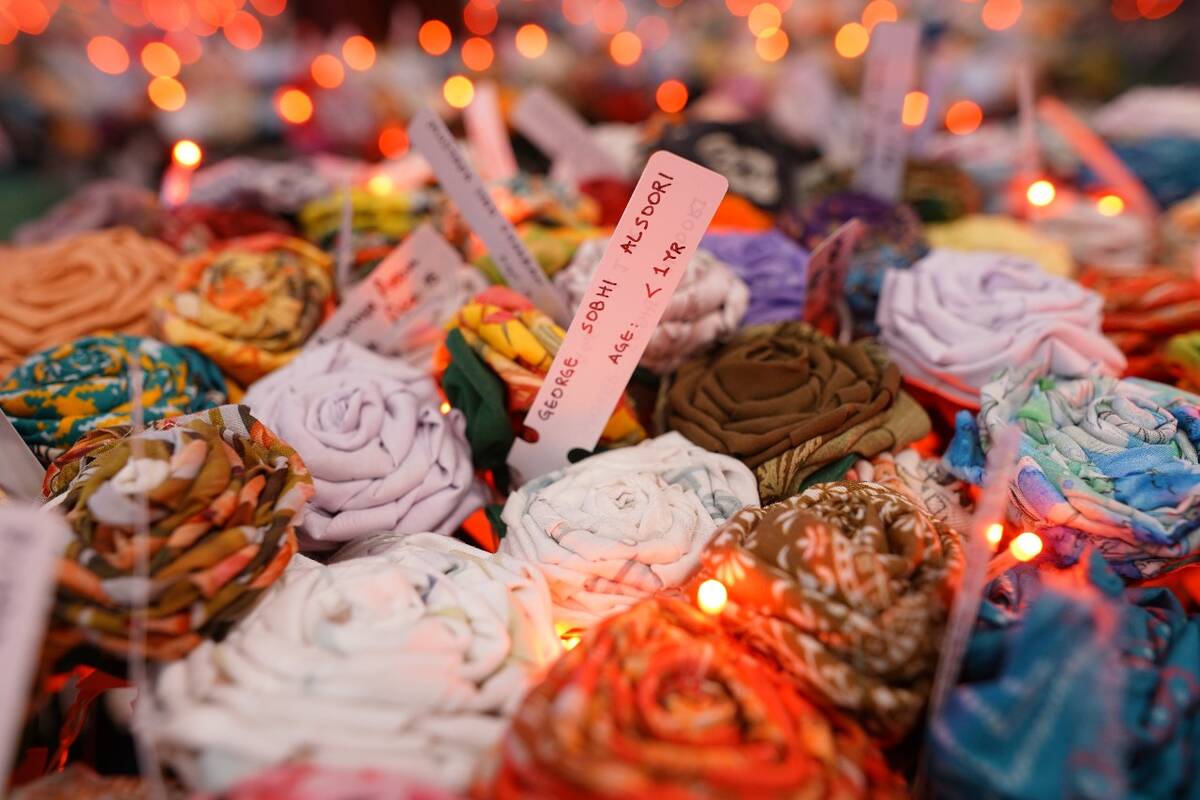RAWALPINDI: Pakistani designer Huma Adnan, whose brand FnkAsia has been working with Afghan refugee women in Karachi for the last two years, has now offered the women space at her studio to create and embroider face masks that protect against the coronavirus.

Hand embroidered masks by refugee women at an embroidery studio set up by FnkAsia in Karachi, Pakistan, on July 15, 2020. (Huma Adnan)
As more and more countries advise or require their citizens to wear facial coverings to curb the spread of COVID-19, refugee tailors and artisans from around the world are stepping up to help. In Pakistan, too, lockdowns introduced to contain the spread of the coronavirus have had a dramatic impact on refugees’ livelihoods, turning tailoring businesses into mask-making ones that have provided a lifeline.

Women practice embroidery in Karachi, Pakistan, on July 30, 2020. (Huma Adnan)
According to UNHCR, Pakistan hosts more than 1.4 million registered Afghans who have been forced to flee violence and persecution at home in Afghanistan. Refugees around the world have been first to feel the economic impact of the coronavirus pandemic because they often work in the informal economy.

A completed mask available for order on FnkAsia online. (Huma Adnan)
"We are strong women, all working to protect our community and Pakistan from the spread of any virus,” said 19-year-old Sonia Azimi, who works at the FnkAsia studio and hails from the northeastern Tahar province of Afghanistan. “I am proud of the embroideries we do and that they are now being used in a protective measure.”

Women embroider masks at a studio in Karachi, Pakistan, on July 27, 2020. (Huma Adnan)
Azimi is one of many women who have been part of Adnan’s training program and learnt how to embroider and produce jewelry and accessories. She and four others now also dozens of other women, mostly from Karachi’s refugee community.

Refugee women, primarily from Afghanistan, don masks while working in Karachi, Pakistan, on July 15, 2020. (Huma Adnan)
“We all know the refugee crisis is a world crisis and it’s increasing in number by the day,” Adnan said. “I knew there is a huge community of refugees living in Karachi, I knew all these vendors that I used to see in the market, I knew they had families, they had wives. So I was always very inquisitive to know who are these people living in Karachi? What do they do?”

A woman embroiders a mask in Karachi, Pakistan, on July 22, 2020. (Huma Adnan)
“I am taking little steps but if the government and [international] organizations look towards them, it will be helpful because they are very, very talented women. Their craft is unmatched,” said Adnan adding that she hoped organizations like UN Women could help promote the work of the women.
“They are capable of making orders worth, you know, 500 pieces a day, maybe a thousand a day,” Adnan said. “Because they are so motivated and they are so ready for the world, to take over. It’s just a matter of time that they get recognized.”



















